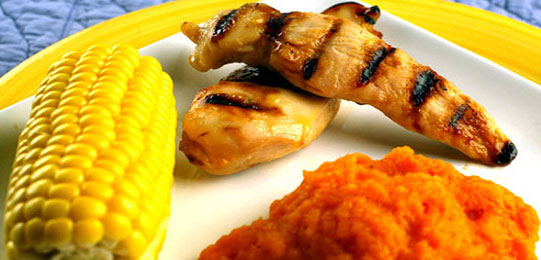
Your DNA: Your Picky Eater
“My kid only eats three things!” Many parents say. A while back an article in the New York Times spoke of a company that now can analyze your DNA and find out such specific information as to why in fact, you might have never wanted to drink milk when you were a kid. (Lactose intolerance tells your body to stay away!)
Parents can pull their hair out, worrying about their kids who refuse to try any new foods. Even formerly adventurous babies, can turn into toddlers and preschoolers who get so picky with their eating, that parents go bananas.
Aside from the beige food eaters, picky eaters are the most typical of early childhood. This is important to understand, because like with any parenting issue, the less personally you take it, and the less you need to truly worry about it becoming a problem, the more relaxed you can be which is always best for your kids!
Some things to consider: Every kid’s palate develops on their own timetable, just like their motor, speech and cognitive development. Think about it; eating involves the three senses of taste, smell and touch. Similarly to how one child reads earlier because the muscles of the eye steady the letter on the page sooner, your child’s senses are developing on their own time line. Don’t worry if you and your husband enjoy more subtle flavors; your child might need more time to develop that part their palate.
Many allergists believe that children who are picky eaters are instinctively tuned into their bodies’ signals that are telling them to stay away from a particular food until their bodies have developed enough immunity to said food. Children are often just less interested in variety, and love the same things. Think of how many times they have to wear the same Superman outfit to preschool, or the same T- shirt? Their world is expanding and they are also asserting their own individuality and taste. Taste, remember! Again, try not to take it personally.
Here are some tips to help you live through the years- and criticizing you may get from so-called well wishers!:
1) If you are worried that they aren’t getting their nutritional needs met, look at your kids’ food over the course of one to two weeks, not just each day. (What nutritionists advocate.) There is more room for those days your kid barely eats anything, or it seems like they really do only exist on mac and cheese.
2) Teach them about the major food groups and what they do for their body. Get them to go grocery shopping with you and pick out the ways they want to eat their protein. Let them pick the fruit, if they won’t eat veggies, If they won’t even do that, challenge them to find another way to get their vitamins. Make it into a game. They are the expert on their body, but they do have the job of taking the best care of it that they possibly can, you say to them. Empower them to take more responsibility. Get them to do some of the work.
3) Let them pick one or two back up meals if they never eat what you prepare for dinner. If they are too young to prepare it themselves, try to keep it simple and something they can reach in the fridge themselves. Don’t worry if it is something like a yogurt, or cereal. Let them portion out their own food.
4) Leverage the siblings if you have more than one child! As they won’t eat the carrots on their plate, ask them if you or if their sister or brother can eat them? Model a “Good, more for me!” attitude, and your own enthusiasm about eating.
5) You can use the ‘try each thing once’ rule, but don’t worry if it doesn’t work or they start to fight you on it. I find that the more pressure you put on them, the less likely they are to find it and appreciate it for themselves when they are ready. It can also set up a power struggle as they begin to individuate themselves.
6) You can try to hide veggies in their food, (Deceptively Delicious advocates might swear by this), but it often doesn’t last long. If you do this, don’t expect it to last and be prepared to deal with the issue square on.
Most of all, remember that there is a lot of evidence to help you as a parent, not take this issue personally. Think of your own and your husband’s background. Were you a picky eater? Are there any food allergies in your family? After all, it could just be in their DNA, not that you are doing a bad job. Or, your child simply needs time to ‘grow into’ their palate. Who knows, they may even become the next ‘Top Chef’!
Donna Fish, L.C.S.W. lives in Manhattan with her husband and 3 daughters and has a private practice. She is the author of “Take the Fight out of Food: How to Prevent and Solve Your Child’s Eating Problems” and is a consultant to many schools nationwide, adjunct faculty at Columbia University, and guest lecturer at NYU, Mount Sinai School of Medicine and Bellevue Hospital.